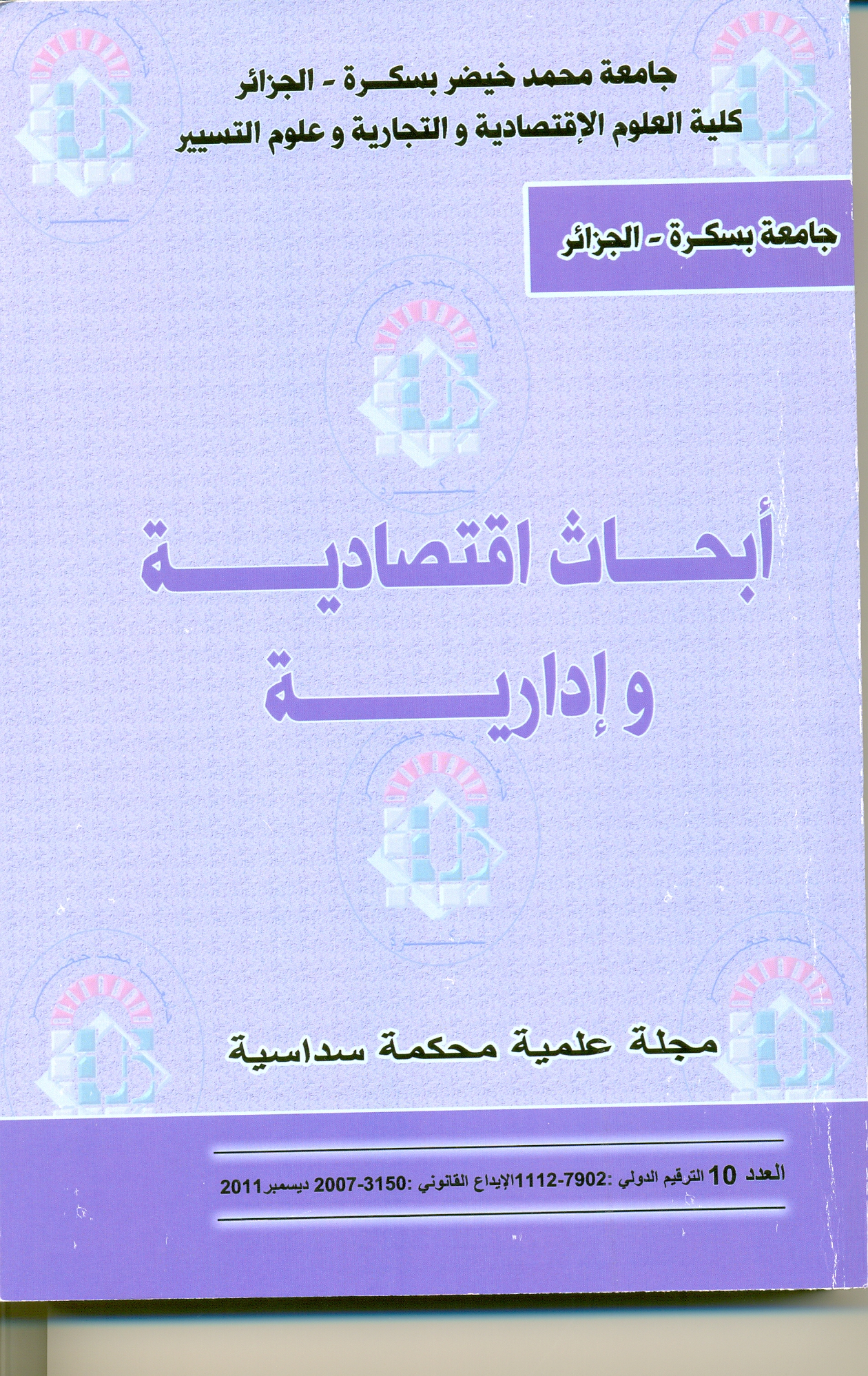الاستقرار المالي رهينة قطاع المحروقات في الجزائر
الملخص
إن الفرضية التي تلقى القبول الواسع بين الاقتصاديين اليوم في دراسة العلاقة بين تطور القطاع المالي و التنمية الاقتصادية هي فرضية العرض القائد,وهي تشير إلى الظاهرة التي تكون فيها التنمية المالية بما تقدمه المؤسسات المالية من خدمات توفير السيولة و سد فجوة المعلومات في بيئة الأعمال وكذا تسعير المخاطر و إرساء قواعد الحوكمة ضمن ما يعرف بمدخل (القانون-التمويل)(Law&Finance) ,دعامة حقيقية للتنمية الاقتصادية ,كما أن الاستقرار في القطاع المالي يعتبر الركيزة المباشرة للقفزة في القطاع الحقيقي, و يقصد بالاستقرار المالي أن يقوم النظام المالي بالوظائف السابقة بشكل جيد وان يكون قادرا على استيعاب الصدمات الداخلية و الخارجية(و التي يعتبر النفط احدها), إلا أن هذه العلاقة شوهت في الدول النفطية ,ذلك أن الإيرادات النفطية أصبحت الداعم الرئيسي لاستقرار النظام المالي على حساب تنافسيته وكفاءته,بما تقدمه الحكومة(بسبب الطفرة النفطية) من دعم للمصارف والمودعين والمقترضين على حد سواء, وهو ماشوه الوظائف التقليدية للنظام المالي وأصبح عاجزا عن القيام بها كما تمليه عليه النظرية المالية,وباعتبار أن المحروقات عموما و النفط على وجه الخصوص تعتبر طاقة غير قابلة للتجدد, فهذا يعني أن الاستقرار المالي في هذه الاقتصاديات سيكون غير قابل للاستمرار لأنه تحقق بعوامل خارج مكوناته,وستظهر الاختلالات التي تم حجبها لعقود من الزمن بفعل الإيرادات النفطية ولكن الكارثة المالية ستكون اكبر وسيتحملها القطاع غير المالي,فنخلص إلى أن الاستقرار المالي و منه التنمية ستكون رهينة قطاع المحروقات .
سنعالج الأفكار السابقة ضمن المحاور التالية:
1-التأصيل النظري لأدبيات الاستقرار المالي.
2-قنوات تأثير النفط على الاستقرار المالي (نظرات في المنهج الإسلامي).
3-المصادر النفطية للاستقرار (أو اللااستقرار) المالي في الجزائر.
4-الأزمة المالية العالمية وانكشاف معضلة النفط في الجزائر.
5-النتائج و التوصيات.
Abstract
The assumption, which has a broad acceptance among economists in the study of the relationship between the development of the financial sector and economic development is "supply leading" hypothesis , referring to the phenomenon in which financial development, including provided services by financial institutions( the services of the provision of liquidity and filling the information gap in the business environment as well as the pricing of the risks and the establishment of governance principles within the so-called in the (Law & Finance) approach, is a real foundation for economic development ,also the stability in the financial sector is the direct pillar for the boom in the real sector, its intended to financial stability that the Financial system can fulfill the previous functions well and be able to absorb shocks (internal and external), but this relationship has been altered in the oil countries, so that oil revenues have become the main supporter of the stability of the financial system at the expense of his competiveness , and efficiency, as a result the financial support provided by the Government for both banks ,depositors and borrowers, the financial system has become unable to do it's traditional functions as dictated by the financial theory, Given that fuel and oil, in particular, is the non-renewable energy, this means that financial stability in these economies would be non-viable because it has been achieved by factors outside its components(not endogenous financial stability), will show the imbalances that have been withheld for decades by oil revenues, but the financial disaster will have hard effects on non-financial sector, and we conclude that the financial stability and development still be as a hostage of hydrocarbon sector.


